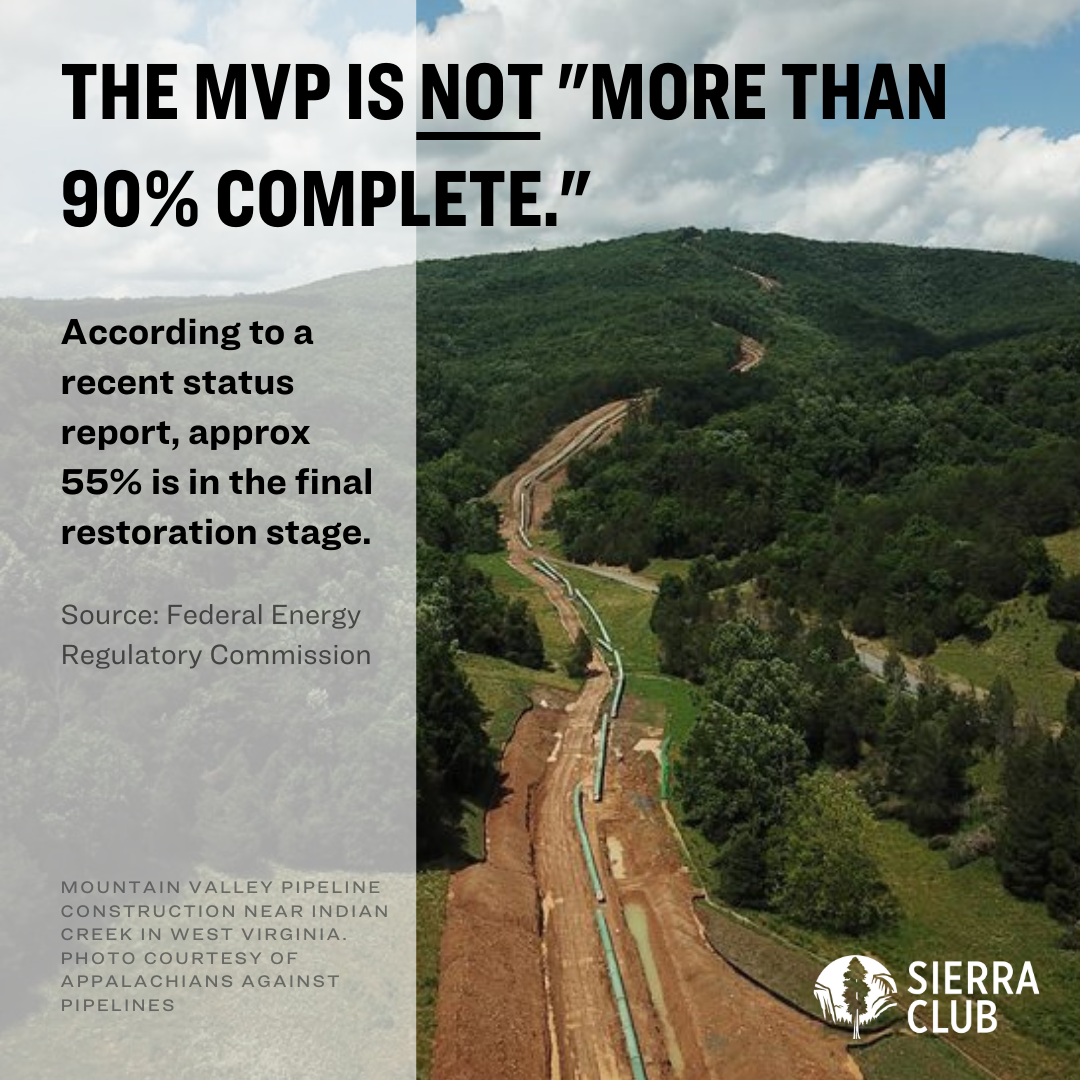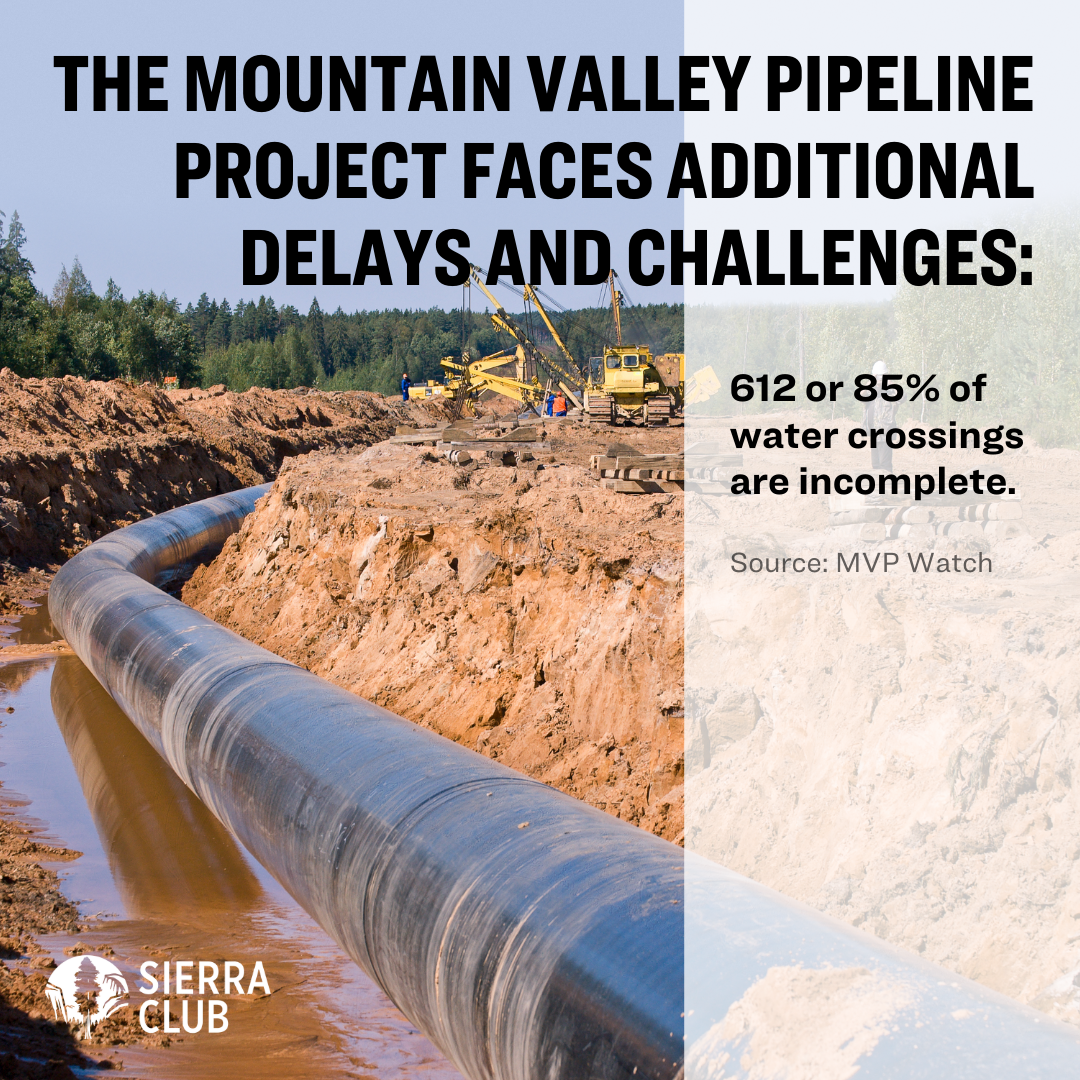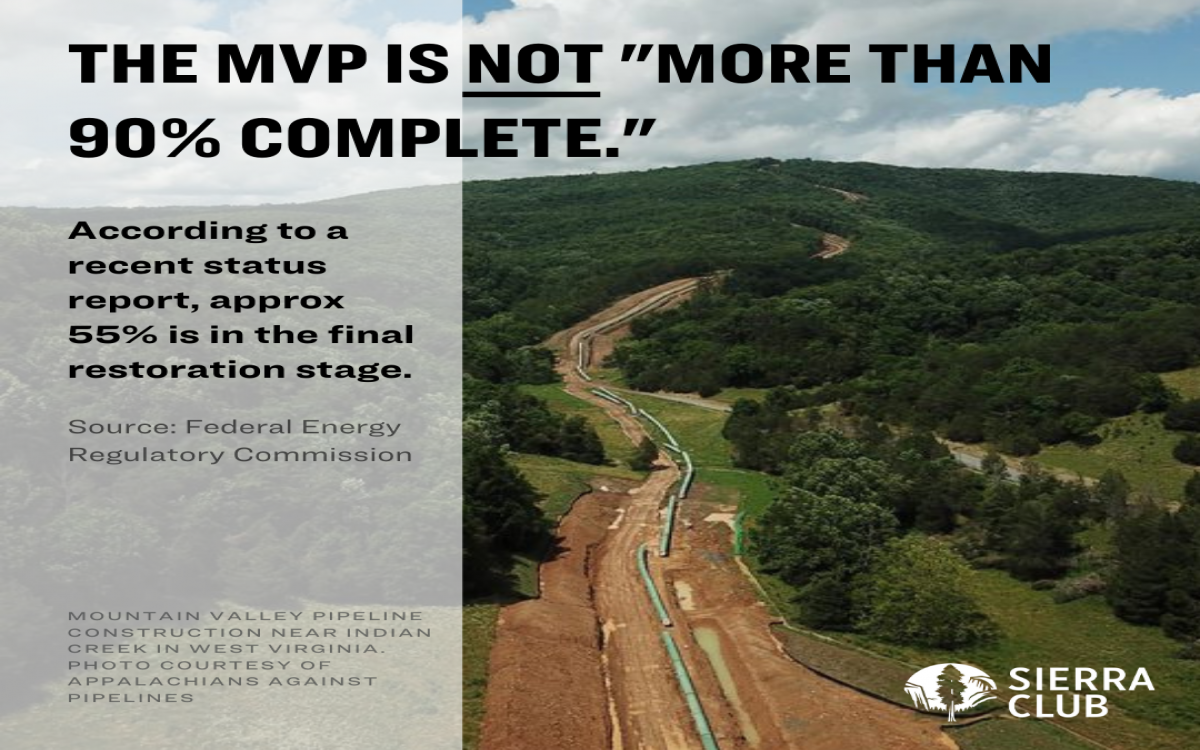Blog post was written in collaboration with Appalachian Voices and the Protect Our Water, Heritage, Rights Coalition (POWHR)
The dangerous Mountain Valley Pipeline (MVP) project has already destroyed and degraded the habitat of endangered species along its route, in addition to threatening our clean air, water, and our communities. MVP has consistently put profits before people and wildlife, resulting in harmful and irreparable impacts on the region’s forests and streams.
The Mountain Valley Pipeline project is in jeopardy and continues to face strong community opposition. Communities have worked tirelessly to protect their health, homes and their environment and have fought for the recent wins. Court decisions invalidating recent key permits are a huge victory for our environment as the preservation of endangered species and national forests were under threat from corporate polluters.
Here is the current state of play of MVP and where we stand. It is clear: MVP is not compatible with a healthy planet and livable communities, and hence should not move forward.
What’s the current status of the pipeline?
- Originally projected to cost $3.7 billion, the Mountain Valley project’s costs have ballooned to $6.2 to $6.5 billion.
- The project is more than three years behind schedule and has faced millions of dollars in fines for hundreds of violations of clean water protections.
- MVP faces even more obstacles with permits still missing and more being challenged.
- Major losses for MVP in the U.S. 4th Circuit Court of Appeals: Over the past month, the MVP has faced even more legal setbacks. The U.S. Court of Appeals for the 4th Circuit vacated two key approvals:
○ The court vacated MVP’s U.S. Forest Service and Bureau of Land Management authorizations, which would have allowed construction across 3.5 miles of federal land in the Jefferson National Forest.
○ This was followed by a ruling to vacate the biological opinion and incidental take statement from the U.S. Fish and Wildlife Service, citing “serious errors” in the agency’s analysis supporting its determination that endangered species would not have been jeopardized by MVP.
- Even more setbacks: The U.S. Army Corps of Engineers is withholding a Clean Water Act Section 404 permit for MVP, at least until the project has a valid Endangered Species Act biological opinion. This decision casts further doubt on the future of the Mountain Valley Pipeline.
- Trouble with investors: MVP investor NextEra Energy recently announced an $800 million loss, and that it is reevaluating its investment in the proposed Mountain Valley Pipeline. NextEra even said there was a “very low probability of pipeline completion.”
- This comes on the heels of Equitrans (the operator and developer of MVP) announcing it is evaluating the proposed MVP Southgate project, including potential timing and design changes to the project.
Is the Mountain Valley Pipeline close to completion?
Short answer: Absolutely not. And that’s because of the legal, financial and reputational pressure people like you have put on the Mountain Valley Pipeline.
The project is about 55 percent complete to full restoration — a far cry from the 90% figure MVP throws out. The work that remains is some of the most difficult and complex construction work. The pipeline has more than 600 difficult water crossings left — 85 percent of all the MVP’s water crossings.

The construction of the MVP is far from inevitable. It still faces additional delays, as the West Virginia and Virginia Clean Water Act Section 401 authorizations are currently being challenged, and the Federal Energy Regulatory Commission (FERC) has not granted MVP’s request to complete some crossings of wetlands and streams via boring. MVP has recklessly rushed to construct portions of the pipeline even when it was missing required federal permits and, although the pipeline has completed portions of its construction, it does not mean this unlawful polluter will ever get the permits it needs to complete the project.
Later this year, FERC will decide whether to grant another extension to MVP, which would potentially cause more harm to our waterways and communities. It shouldn’t. Investors, and even the project’s owners, are beginning to see the writing on the wall and may be looking for a way out. This volatile project should not move forward. FERC must protect the public and deny MVP’s boring amendment request and ultimately their second extension request. We want to ensure that MVP cannot continue to pollute our air and water and damage wildlife habitat. Enough already, it's time for MVP to call it quits. Want to join the fight to stop MVP?

